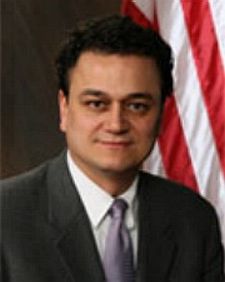In Dallas and cities across Texas, marriage equality marches and demonstrations will be held this weekend. The Dallas march takes place at 4:30 p.m. at Founder’s Square outside the County Records Building in Downtown Dallas.
This year one state — New York — has legalized same-sex marriage and two — Rhode Island and Illinois — have legalized civil unions.
Marriage in New York has been a success. Since the law began effective in July, one in five marriages — 20 percent — have been gay or lesbian couples.
The civil union laws? Not so much. In Illinois, 1,600 couples have taken advantage of civil unions since it went into effect on June 1. In Rhode Island, just 14 couples.
A number of reasons for the lack of enthusiasm for civil unions in Rhode Island include the proximity to states with full marriage and disappointment that the openly gay Speaker of the state House of Representatives, Gordon Fox, couldn’t deliver marriage equality.
Nowhere in the state is anyone more than 20 miles from either Connecticut or Massachusetts, both marriage equality states. And Vermont, New Hampshire and New York are short drives. So why settle for second class?
Even given Rhode Island’s small population, the rate is 10 times lower than other states that began offering civil unions. And the Illinois law does not have the number of exemptions where the civil unions can be disregarded as the Rhode Island law.
The Rhode Island law puts those who married elsewhere into the same position as Texans who marry elsewhere. The civil union law prohibits divorce. So while the state won’t recognize their marriages, it insists that couples who split remain married.
















